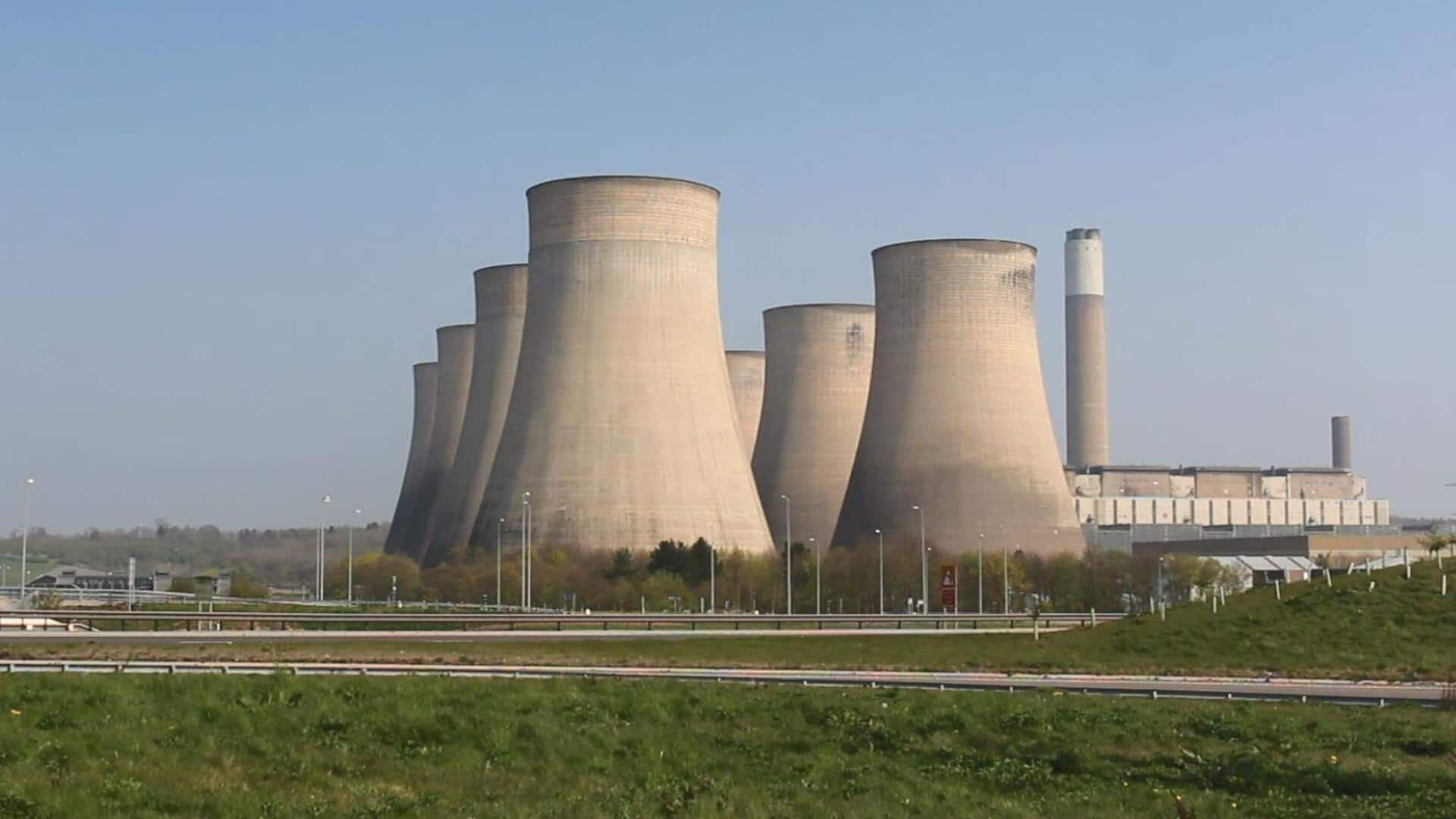
UK shuts down last coal-fired power plant after 142 years
What's the story
The UK has officially shut down its last operational coal-fired power station, Ratcliffe-on-Soar in Nottinghamshire, after 57 years of service.
This closure aligns with the government's policy to phase out coal power, a plan initiated nearly a decade ago.
The shutdown signifies the end of Britain's 142-year history with coal power that began in 1882 with the Holborn Viaduct power station.
Environmental impact
Closure hailed as victory in reducing carbon emissions
Environmental advocates are cheering the closure of Ratcliffe-on-Soar as a big win for cutting down the UK's carbon emissions.
They see it as a display of climate leadership on the global stage, and a fair transition for those working in the coal industry.
Energy Minister Michael Shanks called it a milestone, saying, "Today's closure at Ratcliffe marks the end of an era and coal workers can be rightly proud of their work powering our country for over 140 years."
Global leadership
UK leads G7 economies in phasing out coal
The UK was the first nation to set a deadline for ending coal power by 2025, through the implementation of strict green regulations.
The decision reinforces the country as the first of the Group of Seven (G7) major economies to phase out coal.
This decision was reinforced by ministers, who proposed advancing the deadline by a year, just before hosting UN's COP26 climate talks in Glasgow in late 2021.
Final shutdown
Ratcliffe's closure marks end of coal era
The last 170 staff at Ratcliffe were invited to see the final shutdown through a live stream from the control room.
Peter O'Grady, Ratcliffe's plant manager, described this year as filled with poignant moments and anticipated emotional reactions as operations cease.
The workforce has seen a significant reduction over the years, mirroring the decline in power output from coal.
Energy shift
UK's swift transition from coal power
Back in the early 1980s, coal was powering a whopping 80% of the UK's electricity. By 2012, that number dropped to 40%.
However, over the last decade, its share has plummeted further, thanks to pricey carbon taxes and more affordable renewable energy options.
Phil MacDonald, who heads the global energy think tank Ember, called it "the final chapter of a remarkably swift transition from the country that started the industrial revolution."
Global trend
Coal power halved among OECD countries
According to a report by Ember, coal power has been cut in half among the Organisation for Economic Co-operation and Development (OECD) countries since it reached its peak in 2007.
In 2022, coal power made up 17% of the electricity generated by these nations.
The good news? Out of 38 member states, 27 have pledged to kick coal to the curb by the end of this decade.